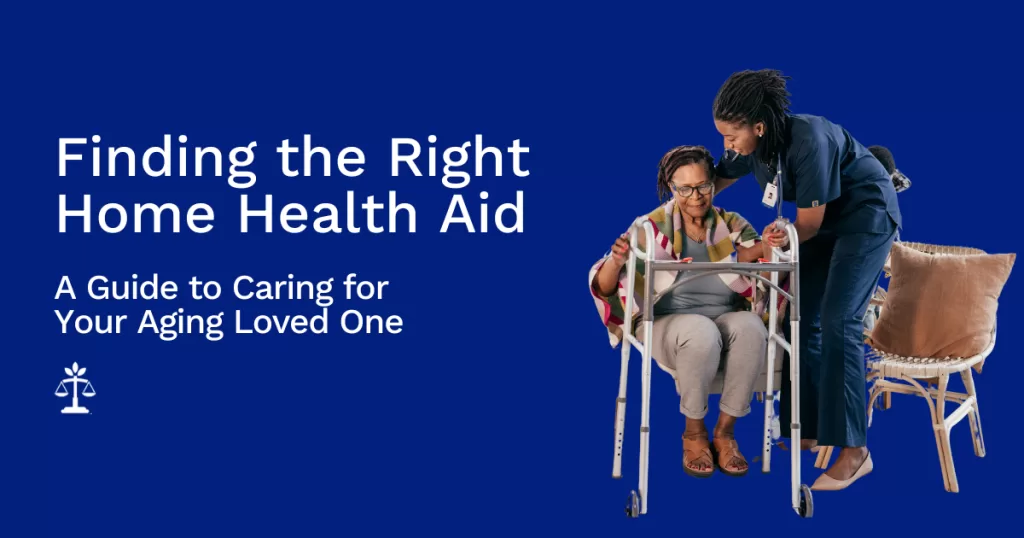Look, I’ve been there. When my dad started needing more help than my sister and I could provide, we had to figure out this whole home health aide situation fast. It’s tough seeing someone who was always so independent suddenly need help with everyday things. But here’s what I learned through that process – getting the right help can make all the difference for everyone involved.
First Things First: What Kind of Help Do They Actually Need?
Before you start making calls or scrolling through websites, sit down and really think about what your loved one needs help with. This isn’t one-size-fits-all, folks.
If they’re mostly independent but struggle with stuff like cooking or getting in and out of the shower, you might just need someone for basic assistance. My dad was like this at first – sharp as a tack mentally, but his arthritis made certain tasks nearly impossible.
If they’re dealing with serious medical issues, you’ll need someone with actual nursing credentials who can handle medications, wound care, and all that medical jazz.
And if memory issues are in the picture – man, that’s its own challenge. You need someone who understands how to work with folks who might not always remember who they are or where they are. My neighbor’s mom has Alzheimer’s, and the difference between having an aide who’s trained for that versus one who isn’t is night and day.
Trust me on this – taking the time to figure out exactly what help they need will save you major headaches down the road.
Agency vs. Going Solo: The Big Decision
Alright, so you’ve figured out what kind of help your loved one needs. Now comes another big choice: do you hire through an agency or find someone on your own?
Going with an agency is like buying a new car from a dealership instead of some random person on Craigslist. You’ll pay more, but there’s built-in protection. The agency handles background checks, they’ve (hopefully) trained their people, they deal with all the tax stuff, and if your aide calls in sick, they’ll send a replacement. When Dad’s regular aide Marlene had a family emergency, the agency had someone else there that same day.
Hiring directly is more like being your own HR department, payroll office, and manager all rolled into one. You might save some cash, and you get total control over who you pick, but you’re also on the hook for everything else. My buddy Steve went this route and saved about 30% on costs, but he also spent a weekend figuring out how to do payroll taxes, which isn’t exactly my idea of a good time.
Either way can work – just go in with your eyes open about what you’re signing up for.
Do Your Homework on Anyone You're Considering
Whether you go with an agency or hire directly, verify everything. And I mean everything.
Check their certifications. Make sure they’re actually qualified to do what they say they can do. If they claim they’re a licensed practical nurse, ask to see the license.
Call their references. Don’t just collect names – actually pick up the phone and ask questions. “Were they reliable?” “How did they handle unexpected situations?” “Would you hire them again?” You’d be surprised what people will tell you if you just ask.
Run a background check. This person is going to be in your loved one’s home, often alone with them. This isn’t being paranoid – it’s being smart.
When we were hiring for Dad, one candidate had glowing references but her certification had expired six months earlier. Another had a perfect resume but couldn’t give me a straight answer about how she’d handle Dad’s occasional stubbornness. Keep looking until everything checks out.
The Interview: It's Not Just About Skills
Skills matter, but personality fit might matter even more. This person isn’t just going to be helping with physical tasks – they’re going to be spending hours every day with your loved one.
When you interview candidates, watch how they interact. Are they patient? Do they seem genuinely interested in your loved one as a person, or are they just going through the motions?
Ask scenario questions: “What would you do if my mom refuses to take her medication?” “How would you handle it if my dad gets confused and thinks you’re an intruder?” Their answers will tell you a lot about their approach.
And involve your loved one in the process if possible. Dad immediately clicked with Marlene during their first meeting – they discovered they both loved old westerns and baseball. That connection made the transition so much smoother.
The Money Talk
Let’s be real – this stuff isn’t cheap, and most families aren’t prepared for the cost. Home health aides can run anywhere from $20 to $40 an hour depending on where you live and the level of care needed. That adds up fast.
Medicare will cover some home health services, but only if they’re prescribed by a doctor and only for specific medical care – not help with bathing or meal prep. It’s also typically short-term, not the ongoing help many seniors need.
Long-term care insurance can be a lifesaver if your loved one has it. Check the policy details carefully – some cover home care, others only cover nursing facilities.
If your loved one is a veteran, definitely check with the VA. They have programs specifically for home care that many families don’t even know about.
And don’t overlook Medicaid if finances are tight. The income requirements are strict, but for seniors with limited resources, it can provide essential coverage.
We ended up using a combination of Dad’s savings and pitching in as a family to cover costs. It wasn’t easy, but we made it work.
Get Everything in Writing
Once you’ve found the right person, put everything in writing. Seriously, everything. What tasks they’ll handle, what hours they’ll work, how much they’ll be paid, what happens if they need a day off – all of it.
This isn’t about not trusting someone – it’s about making sure everyone is on the same page from day one. It prevents those awkward “I thought you were going to handle that” conversations down the road.
Keep Tabs on Things
Having a home health aide doesn’t mean you’re off the hook for staying involved. Regular check-ins are essential.
Stop by unexpectedly sometimes. Set up a care log where the aide records medications, meals, and activities. If your loved one is comfortable with it (and mentally able to consent), consider a security camera in common areas.
Most importantly, maintain open communication with both the aide and your loved one. Ask specific questions: “How did Dad sleep last night?” “Did Mom eat her entire lunch?” “Any challenges I should know about?”
When things were going well with Dad’s care, we’d get complacent about checking in. That’s exactly when small issues would start to develop. Stay vigilant.
Be Ready to Make a Change if Needed
Sometimes, despite your best efforts, it just doesn’t work out. Maybe your loved one’s needs change, or maybe the aide who seemed perfect on paper just isn’t clicking with them in reality.
If that happens, don’t drag your feet making a change. Yes, it’s disruptive, and yes, you’ll have to start parts of the process over. But at the end of the day, your loved one’s wellbeing is what matters most.
When Dad’s condition worsened, we had to switch from a home health aide to a more medically trained nurse. It was a tough transition, but necessary.
Get Professional Guidance
Navigating the financial and legal side of eldercare can feel like trying to do your taxes in a foreign language. Don’t go it alone if you don’t have to.
An elder law attorney can help you figure out how to pay for care without bankrupting anyone, set up the right legal protections, and make sure everyone’s on solid footing. The few hundred bucks for a consultation could save you thousands in the long run.
This whole process is challenging – emotionally, logistically, and financially. But finding the right help can transform what could be a stressful situation into one where your loved one gets the care they need while maintaining as much independence and dignity as possible. That’s what we all want for the people who took care of us when we needed it, right?
If you’re in Central Texas and need more specific guidance, reach out. Having been through this myself, I’m always happy to point folks toward resources that helped our family navigate this journey.

